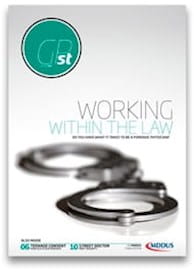WHEN I started my training, I was part of the first group to go through the new GP training programme introduced by the RCGP about four years ago. This was a three-year programme based in south Glasgow that involved rotating through various specialties such as psychiatry and paediatrics and included 18 months in general practice. As I’m sure you’re all aware the application process was extremely daunting with written examinations and clinical scenarios to contend with. Once I successfully completed it, I was relieved to find myself in my chosen specialty, with the reassuring prospect of three years of regular employment.
Looking back over my experiences in training, there have been highs and lows. Admittedly, I started out with the rather naïve idea that it was all going to be plain sailing but, for all the challenges along the way, I have met some enthusiastic fellow GPs who I now count amongst my life-long friends. A huge bonus was having a great GP mentor who was very supportive. Without this help, I doubt I would have passed my membership exams let alone successfully completed my training.
As I progressed, my knowledge and communication skills improved and I became more confident about making my own decisions about the type of medicine I wanted to practise. The paternalistic medicine that I had applied in hospital was left behind as I embraced a different approach that sought to explore patients’ ideas, concerns and expectations. Throughout this process I learned the importance of the “whole picture” in relation to a patient’s spiritual, physical, social and mental wellbeing. Building up rapport with patients and their families was an enjoyable experience. Providing such continuity of care is a luxury you are not always afforded in secondary care.
One major challenge of GP training is keeping up with all the paper work, although it’s not so much paper as electronic form-filling. I did struggle with the demands of the ePortfolio where GP trainees are required to “record their learning” and log evidence collected through the application of the work place based assessment (WPBA) tools. In addition to this there is also the reflective process to contend with, requiring log entries on a weekly basis. I would recommend keeping this up-to-date as you go along as leaving it all to the last minute is a recipe for disaster.
Learning to deal with stress and pressure is an important skill for trainees. I really felt under pressure during my ST3 year when I was trying to balance full-time work with providing out-of-hours care and studying for exams. The key thing is to try to maintain a healthy work/social life balance as we can all get too easily bogged down.
Thankfully, there was light at the end of the tunnel and I achieved my goal in August 2011. I then had to face the “real-world” where I had no GP mentor and had to search for regular work. My CV was non-existent and needed a lot of work but I would recommend you get this sorted before completion. Hastily put-together CVs are easily spotted and can be the difference between getting regular employment or not. I joined the Glasgow and Lothian GP locum groups and sent my CV electronically to all practices in my health board area.
For any prospective locums, here are 10 tips to help you prepare for the world of work:
- Ensure your CV is accurate and up-to-date.
- Send CVs electronically – this saves money on envelopes and postage.
- Join the GP performers’ lists of your local and surrounding areas – if you are willing to travel you are more likely to get work.
- Join your local locum group – they advertise posts and provide educational evenings.
- Ensure you have an invoice template – easy to print off at every practice.
- You are now self-employed – get yourself an accountant; they work wonders.
- Keep all expenses up-to-date – you will need to claim this against tax deductions.
- Keep aside a folder for important documents such as CCT and medical indemnity certificates – you will need these for each practice you work in.
- Start preparing early for your appraisal – it comes around very quickly after completion of training.
- Finally – enjoy yourself. You have reached your goal. Dr Peter Livingstone is a locum GP and editor of GPST
This page was correct at the time of publication. Any guidance is intended as general guidance for members only. If you are a member and need specific advice relating to your own circumstances, please contact one of our advisers.
Read more from this issue of Insight Primary

Save this article
Save this article to a list of favourite articles which members can access in their account.
Save to library
